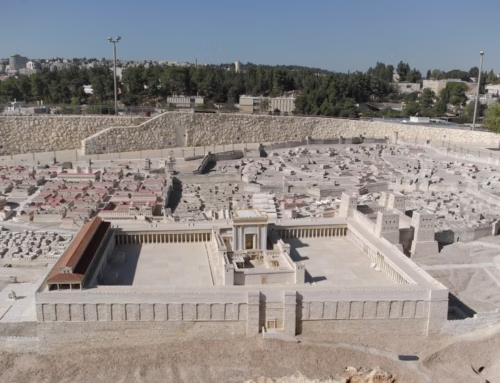Autumn holidays – while threatened by war
The major autumn holidays in Judaism will soon begin with Rosh Hashanah, Yom Kippur and Sukkot. Ahead of this year’s holidays, Israel is living through a war on its existence by the terrorist groups Hamas and Hezbollah, along with open military threats from Iran and Turkey

During Rosh Hashanah, the evening meal often begins with eating slices of apple dipped in honey. Photo: Joshua Bousel
This year the Jewish New Year Rosh Hashanah begins on the evening of October 2 and runs through Friday October 4, which corresponds to the first and second days of the month of Tishri in the Jewish calendar. Rosh Hashanah is first of the major autumn holidays, and marks the beginning of the civil year on the Jewish calendar where 1 Tishri marks the start of the year 5785.
Biblical chronology otherwise has the holiday of Pesach as its starting point, which means that the first month according to the religious calendar is Nisan. Pesach begins on 15 Nisan and is described in the Bible as falling ”in the first month”, while Rosh Hashanah begins on 1 Tishri and according to the Bible falls ”in the seventh month”.
Rosh Hashanah, which falls in September or October, begins the ten days of penance that ends with the Day of Atonement, Yom Kippur, and is one of Judaism’s main holidays. The ten days of penance are a time for reflection and penance.
Ten days of penance
Rosh Hashanah and Yom Kippur, along with the three pilgrimage festivals (Sukkot, Pesach and Shavuot) along with the Shabbat (which falls on the seventh day of each week) are the feasts found in the Bible. On Yom Kippur in biblical times, the Jewish people gathered in the Temple in Jerusalem where the high priest entered through the thick curtain, into the Holy of Holies where the Ark of the Covenant and the glory of God were. There the high priest confessed his own sins and the sins of the people and offered sacrifices.
Since the destruction of the temple in Jerusalem in 70 AD, the Day of Atonement has been held with fasting, prayer, services and by asking one’s fellow humans for forgiveness for errors and mistakes that have been made.
Sukkot, or the Feast of Tabernacles, is a Jewish holiday that falls annually on the 15th of Tishri in the Jewish calendar, which corresponds to late September or early October, and lasts seven days and ends with two more holidays, Shemini Atzeret and Simchat Torah.
Existential threat
Ahead of this year’s major fall holidays, Israel is, and has been, living under an existential threat since the Hamas massacre in southern Israel a year ago. In addition to the war against Hamas, the terrorist group Hezbollah regularly fires rockets at northern Israel from Lebanon, Iran has promised vengeance for the elimination of Hamas leader Ismail Haniya, Turkey is mobilizing the Arab and Muslim world for military aggression against Israel, and China and Russia are making efforts to give the terrorist group Hamas a political role in a Palestinian state while Muslim countries via several different UN bodies act against Israel together with repressive regimes around China and Russia.
Several Arab wars against Israel have been started on Jewish holidays, such as Yom Kippur in 1973 and the Hamas massacre on October 7 just over a year ago, which was a massive, coordinated attack on the religious Jewish holiday of Simchat Torah, and was the day after the fiftieth anniversary of Yom The Kippur War.


